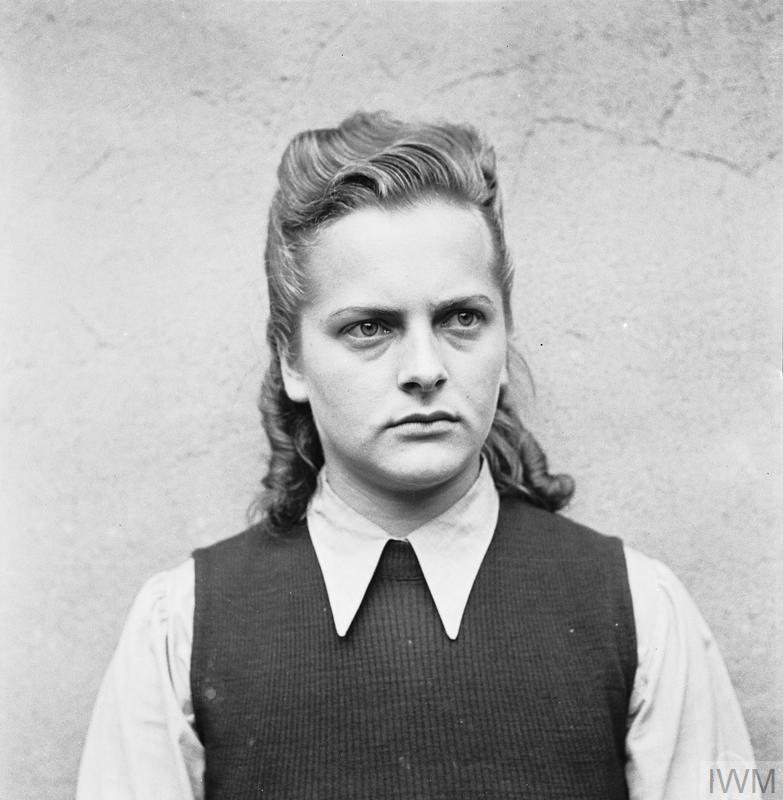Irma Grese was a female concentration camp guard (Aufseherin). She was only 18 years old when she began her service at the women’s concentration camp Ravensbrück in July 1942. She became infamous for her extreme brutality towards prisoners and for being executed as one of the youngest war criminals at the age of 22.
Irma Grese was born in the town of Wrechen in 1923. She left primary school when she was 14 years old. She worked on a farm and later as a saleswoman at a dairy shop. She repeatedly applied for a training position at the SS-sanatorium at Hohenlychen but was not accepted. Eventually she started working there as an untrained assistant nurse.
In the summer of 1942 Grese became a guard at the Ravensbrück concentration camp. From here she would quickly rise through the ranks of the concentration camp system. In March 1943, Grese was transferred to Auschwitz-Birkenau. Here she became second in command among the female camp staff. She worked in camp section ‘C’ where she oversaw 20,000 to 30,000 female prisoners. While at the camp she also took part in the ‘selection process’. This meant that when new prisoners arrived to the camp, Grese would decide who was considered fit to work and who was to be sent directly to the gas chambers. In March 1945, Grese was sent to the Bergen-Belsen concentration camp, where she worked as command leader until British troops liberated the camp in April 1945.
Grese was arrested during the liberation of the camp and charged at the Belsen trial in Lüneburg. She was found guilty of her crimes, sentenced to death, and eventually hanged in November 1945. Grese’s behaviour at the trial as well as her farewell letter to her sister revealed that she remained loyal to her ideological position and showed no signs of remorse nor recognition of her wrongdoings.
